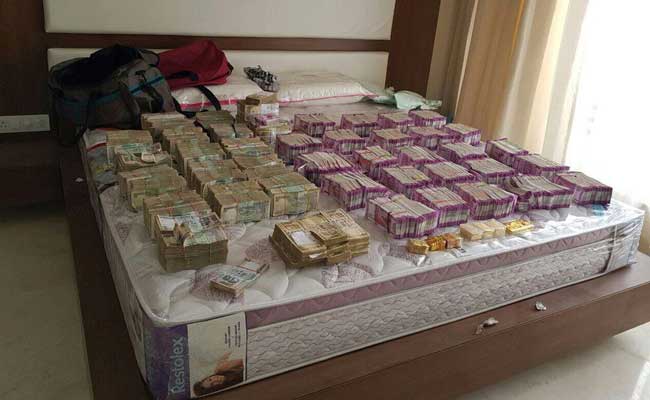I think we need to take a step back here and note that there's no magic wand that's going to eliminate Black Money in an instant. There are issues in the roll-out of the said scheme and if some news reports are to be believed, BJP did benefit out of it.
That said, do you disagree that there's money being put into the system because of this move and if there's are benefits to having more money in the banking system. There seems to be some downward trend in the housing market because of this move. Temporarily, atleast, the real estate market seems to be a little bit more affordable to the common man.
Whilst the distress of the common man is real, I really do think that it could've been avoided with proper management.
So, you do accept that the demonetisation has failed to curb black money and fake currency, don't you? Government told us that the purpose of demonetisation was to curb black money and fake currency. While i was almost sure that the criminals will eventually decode the security features of the new notes, i thought that it will take them at least 2 months. But, surprisingly, fake currencies of new notes are already entered the market. There are many reports regarding the same. I think these criminals are more efficient than our RBI

.
As far as the black money is concerned, the total value of banned 500 and 1000 notes which was in circulation on November 8, 2016 was 14 lakh crores. And as per today's CNBC-TV18 report, 11 lakh crore rupees already entered the banking systems till November 30. And we still have around one more month to deposit the invalid currency notes. So, one could easily expect 3 lakh crore more deposit in the remaining 30 days. So, where is the black money? People with black money either exchanged it with new notes or deposited it in the bank through many ways. These stats says volumes about the current governments knowledge and competence level.
So, if you look at the circus which is still running and then look at the stats mentioned above, you could see that the demonetisation almost completely failed to curb black money and fake currency.
Now coming to the second part; while i do agree that now there is more money in the bank, i don't think it is going to help the common man in a big way. And the small benefits are never going to cover the losses caused to the poor and to the economy, and surely it is not going to get back the lives of 80 citizens who dies because of this move. One possible advantage is that the loans might become cheaper. But at the same time, it will take at least 1 year to recover from the economic slow down caused by the demonetisation, and 1 year is an underestimate. Even if everything go smooth from now, it will take at least 6 months for the currencies to be freely available as it was prior to November 8. And by that time, a lot of small and medium businesses which are already struggling, might be forced to close. A lot of farmers and the agriculture itself, might face a similar fate.
And there is another big advantage of banks having more money. Banks could write off more loans, but this will only help the corporates

.
And if you are looking at the plastic money angle, i had mentioned my view on it before. The concept of cashless economy and plastic currency are all good to hear and will make life easier for those who are ready for that change. But we should think about it from an Indian perspective. And the fact is that, in India, there still have a good percentage of population, say around 30%, who doesn't hold a simple savings account. More than 30% of Indian population are illiterate. Many are not even aware of these changes and demonetisation. And forget about internet facilities, many villages are yet to have continuous power supply. Many families don't have a computer or internet in their home. Only 300 million people in India uses a smartphone out of the 1300 million population. And most importantly, the fundamental of Indian economy is still agriculture and 70% of money transactions in India are made by cash payments.
Yes, you can talk big and dream for a cashless economy. But looking at the above stats, you can understand that India is not ready for a big change like cashless economy.
And another concern about cashless economy is that, the people and the economy are going to be 100% dependent on the banking systems. Before November 8, even if the banking systems fails or collapses, Indian economy won't collapse like what happened in Greece, because Indian economy prior to November 8 was not fully dependent on banking systems. But a complete dependence on banking system will make Indian economy more vulnerable to external factors and international financial situation. So, in my point of view, a balance between cashless and cash economy is the best option for a country like India as long as it is dependent on it's agriculture and the illiterate workforce.
I am not against e-payments and plastic currency concepts. But i think India is not ready for that big change and it will take years to implement such a system here. The government should make sure the availability of power and internet all over India at cheap cost before implementing this concept.



